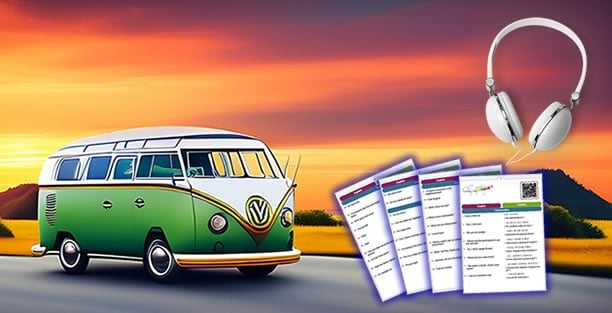Learn Korean
| English | Korean | |||
|---|---|---|---|---|
| Hello | 안녕하세요 | |||
| Hi | 안녕 | |||
| Good evening | 안녕하세요 | |||
| Good evening | 안녕 | |||
| Goodbye | 안녕히 가세요 - 안녕히 계세요 | |||
| Goodbye | 잘가 - 잘있어 | |||
| See you later | 나중에 봅시다 | |||
| See you later | 나중에 보자 | |||
| Yes | 네 | |||
| Yes | 예 | |||
| No | 아니요 | |||
| No | 아니 | |||
| Excuse me! | 실례합니다 | |||
| Excuse me! | 저기요 | |||
| Thanks | 감사합니다 | |||
| Thanks | 고마워 | |||
| Thanks a lot | 정말 감사합니다 | |||
| Thank you for your help | 도와주셔서 감사합니다 | |||
| Thank you for your help | 도와줘서 고마워 | |||
| You’re welcome | 아니에요 | |||
| Okay | 알았습니다 | |||
| Okay | 알았어 | |||
| How much is it? | 가격이 얼마예요? | |||
| Sorry! | 죄송해요 | |||
| Sorry! | 미안해 | |||
| I don't understand | 이해를 못 했어요 | |||
| I don't understand | 이해가 안 돼 | |||
| I get it | 이해했어요 | |||
| I get it | 이해했어 | |||
| I don't know | 잘 모르겠는데요 | |||
| I don't know | 잘 몰라 | |||
| Forbidden | 금지 | |||
| Excuse me, where are the toilets? | 화장실이 어디에 있어요? | |||
| Happy New Year! | 새해 복 많이 받으세요 | |||
| Happy Birthday! | 생신을 축하 드려요 | |||
| Happy Holidays! | 경사를 축하드려요 | |||
| Congratulations! | 축하해요 | |||
| Congratulations! | 축하해 |
Objectives Do you want to learn the basics of Korean to handle the most common everyday situations in South Korea? Loecsen offers a structured Korean course for complete beginners, aligned with the skills expected at the CEFR A1 level. Vocabulary and sentences are selected to reflect real-life situations, such as introducing yourself, understanding simple phrases, asking short questions, or interacting politely, while following a clear and progressive learning path. There is no abstract method or artificial content here: you focus on what truly matters, with complete sentences, grammar explained through usage, special attention to politeness levels and pronunciation, and modern tools to support effective memorization. As a result, in just a few weeks, with 5 to 15 minutes a day, you reach your first A1 language goal and gain practical autonomy from your very first exchanges in Korean.
Learn Korean online: a beginner-friendly course to start from zero
Korean is often seen as a difficult language for beginners, mainly because of its writing system and its very different structure compared to European languages. In reality, Korean is one of the most logically designed languages in the world, and it can be surprisingly accessible when approached the right way.
When learned through everyday expressions, listening, and repetition, Korean quickly becomes understandable and usable. The key is not to memorize complex rules, but to understand how the language is built and how it sounds in real life.
The Loecsen “First Contact” course is a free online Korean course for beginners, designed for people starting from zero. It helps learners begin understanding and using Korean step by step, without pressure.
Why Korean attracts so many learners
Korean is primarily spoken in South Korea and North Korea, and by Korean communities around the world. In recent years, interest in learning Korean has grown rapidly thanks to Korean culture, music, cinema, and television.
Korean pop music, often referred to as K-pop, has introduced millions of people to the sound of the language. Groups such as BTS or BLACKPINK, along with Korean dramas and films, have made Korean familiar and appealing even before learners start studying it.
The origins of the Korean language and its unique identity
Korean developed over many centuries on the Korean peninsula, shaped by the region’s geography, history, and cultural continuity. It evolved as a language used for administration, daily life, and oral transmission long before it had its own writing system.
For a long time, Korean was written using adapted Chinese characters, but the spoken language followed its own structure and rhythm. This long oral tradition helped shape a language that is highly consistent in the way it expresses meaning.
Because of this historical development, Korean uses a sentence structure and verbal system that reflect a very clear internal logic. Once learners become familiar with this logic through repeated exposure, the language quickly feels structured, predictable, and coherent.
Hangul: the Korean writing system explained simply
One of the most remarkable aspects of Korean is its writing system, called Hangul. Unlike many writing systems, Hangul was deliberately created in the 15th century under King Sejong to be easy to learn and accessible to everyone.
Hangul is not a complex system of symbols to memorize. It is a phonetic alphabet where each letter represents a sound. Letters are combined into blocks that represent syllables.
In total, Hangul is built from a small and manageable set of characters: there are 14 basic consonants and 10 basic vowels. These basic letters are enough to read and pronounce the vast majority of everyday Korean words.
If we include double consonants and combined vowels, Korean uses 40 letters in total (19 consonants and 21 vowels). However, beginners do not need to learn all of them at once, because they are formed logically from the basic ones.
As for pronunciation, the number of “real sounds” is smaller than the number of letters, because many consonants sound slightly different depending on their position in the syllable. For beginners, what matters is learning the main sound values first. In practice, mastering about 24 to 30 core sounds is enough to read, pronounce, and understand everyday Korean at beginner level.
Once learners understand how sounds combine into syllable blocks, they can read a very large number of Korean syllables, even if they do not yet know the meaning of the words.
For example, the word “한국” (Korea) is made of two syllable blocks, each built from simple sound units. Once learners understand how these blocks are formed, reading becomes very fast.
If you already know the Latin alphabet, you already understand the basic principle: a consonant sound + a vowel sound form a syllable. For example, in the Latin alphabet, “g” + “a” gives “ga”, and “m” + “i” gives “mi”.
Korean works the same way. The only difference is visual: instead of writing sounds in a line, Korean groups them into a small square block that represents one spoken syllable.
From sounds to syllables: the core principle of Hangul
Each Korean syllable is built by combining at least one consonant and one vowel. Once you understand this mechanism, Hangul becomes logical and predictable.
| Consonant | Vowel | Syllable | Pronunciation |
|---|---|---|---|
| ㄱ (g / k) | ㅏ (a) | 가 | ga |
| ㄴ (n) | ㅏ (a) | 나 | na |
| ㅁ (m) | ㅣ (i) | 미 | mi |
| ㅂ (b / p) | ㅗ (o) | 보 | bo |
| ㅅ (s) | ㅜ (u) | 수 | su |
This table shows that Hangul works exactly like a sound puzzle: you identify the consonant sound, add the vowel sound, and immediately get a spoken syllable.
Just like in the Latin alphabet, once you know the sounds of the consonants and vowels, you can read new syllables immediately, even if you have never seen the word before.
This is why Korean is much easier to read than it looks. There are no silent letters, and pronunciation closely follows spelling.
By learning Hangul through real words and short everyday expressions, beginners naturally connect reading, listening, and speaking. With regular exposure, most learners can read Korean confidently within a few days.
How Korean sentences work in everyday communication
Korean sentences typically place the verb at the end. For example: “여기 있어요” (I am here) or “이해하지 못해요” (I don’t understand). This structure stays the same in almost all sentences.
Instead of using word order to show meaning, Korean relies on small markers attached to words. These markers indicate roles such as subject, object, or location.
Once learners become familiar with this pattern, sentence construction becomes very regular and reassuring.
Understanding politeness and sentence endings in Korean
Politeness is a central element of Korean grammar. It is not an optional layer added to the language, but a core mechanism that reflects how speakers position themselves socially in relation to others. Through sentence endings, Korean expresses respect, familiarity, distance, and context in a very precise way.
This system reflects a high level of social sophistication. Even native Korean speakers sometimes hesitate about which level of politeness to use, especially in situations where relationships are unclear or evolving. This shows that politeness in Korean is not a rigid set of rules, but a flexible and living system.
Most importantly, Korean politeness is not fixed in time. As Korean society evolves, so does the language. Younger generations may use certain polite forms differently from older speakers, and some expressions that were common in the past are now less frequent or used in new ways.
To understand this in practice, it is helpful to see how the same request can be expressed with different sentence endings. For example, the idea “Can you help me, please?” can be said in several ways:
“도와주세요.” (do-wa-ju-se-yo) – Please help me.
This is the polite neutral form. It is the most important form for beginners and is appropriate in the majority of everyday situations, especially when speaking to strangers or people you do not know well.
“도와주실 수 있어요?” (do-wa-ju-sil su i-sseo-yo?) – Could you help me?
This version sounds softer and slightly more respectful. It is often used when making a careful or considerate request.
“도와줄래?” (do-wa-jul-lae?) – Can you help me?
This is a casual form, used only with close friends or people of the same age. It should not be used in formal or unfamiliar contexts.
“도와주십시오.” (do-wa-ju-ship-shi-o) – Please assist me.
This is a very formal form, mainly used in official announcements or public communication. Beginners do not need to use it, but recognizing it helps with comprehension.
In the Loecsen “First Contact” course, great care has been taken to use the level of politeness that is naturally expected from a foreign learner in each situation. The focus is on forms that are socially appropriate, modern, and widely accepted.
By listening to and repeating complete sentences in context, learners gradually develop an intuitive sense of Korean politeness, without having to memorize complex grammatical systems.
What beginners should learn first to start speaking Korean
To learn Korean efficiently, beginners should focus on useful everyday expressions rather than isolated vocabulary.
Examples include: “여기 있어요” (I’m here), “잘 모르겠어요” (I’m not sure), “도와주세요” (Please help me), “다시 말해 주세요” (Please say it again).
These expressions allow learners to communicate immediately while absorbing Korean sentence structure naturally.
A concrete and effective to-do list for learning Korean with Loecsen
- Practice every day, even just 5 minutes, to stay familiar with Korean sounds and rhythm.
- Learn Hangul through real words, not isolated letters.
- Listen and repeat complete sentences to internalize structure and endings.
- Read aloud systematically, since Korean spelling matches pronunciation.
- Focus on one polite sentence form to avoid confusion at the beginning.
- Write short words or syllable blocks by hand to reinforce character recognition.
- Use the “Listening” mode to get used to natural Korean speech.
- Use the “AI Dialogue” mode to practice real-life situations without stress.
- Use the “Learn with music” page to learn through K-pop songs, films, or series you enjoy.
Learning Korean through culture, music, and cinema
Korean culture plays a major role in language motivation. Listening to K-pop helps learners become familiar with rhythm, pronunciation, and common expressions.
Korean cinema has also gained worldwide recognition through directors such as Bong Joon-ho and Park Chan-wook. Films and series expose learners to authentic spoken Korean in meaningful contexts.
Using content you enjoy makes learning more engaging and emotionally memorable.
Staying motivated when learning Korean from zero
Feeling lost or overwhelmed at the beginning is normal when learning Korean.
- Set very small goals to maintain momentum.
- Return to familiar expressions to regain confidence.
- Accept repetition as a key part of learning.
- Change learning modes when motivation drops.
- Focus on understanding and being understood, not on perfection.
In language learning, consistency is always more effective than intensity.
How the Loecsen “First Contact” course helps beginners in practice
The Loecsen “First Contact” course is a free online Korean course created specifically for complete beginners.
It focuses on essential everyday expressions, worked through listening, repetition, and reuse. Explanations are always practical and directly linked to real usage.
With 5 to 15 minutes of practice per day, learners can build a solid foundation to understand and speak Korean in simple, real-life situations.
Frequently asked questions about learning Korean online
Is Korean difficult for beginners?
Korean is different from European languages, but its logic and regular writing system make it more accessible than many learners expect.
Is the Korean alphabet hard to learn?
No. Hangul is considered one of the easiest writing systems to learn, and many beginners can read it within a few days.
Can I learn Korean online for free?
Yes, by following a structured free online Korean course such as Loecsen “First Contact”, combined with the AI Dialogue and Learn with music tools.
How can I continue improving after the basics?
Using Korean music, films, and personal content through the Learn with music feature allows learners to keep progressing naturally over time.






